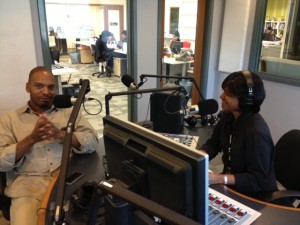When he was in town, we organized an interview at BFM Radio. Rhamis was in Malaysia to teach a two week Permaculture Design Course, and prior engagements, including two talks with Peace Meal. Pomegranate Versus Heroin: Muslims Getting a Wholesome High on Nature and Ibn Khaldun’s Pleasures of Civilization.
Just like how when Islam came, it brought a whole new refreshing idea, narrative, philosophy (call it what you will for this context), permaculture is somewhat refreshing too. In this interview Rhamis addresses a few key issues with the way the world, and we, run things today.
The following an excerpt from the interview. Listen to the full interview on this podcast, by clicking here.
Being children of the industrial age, we are primarily seen as being consumers. And not producers. We don’t produce the things that we use. We don’t grow the food. We don’t make the housing. We buy the house that we live in from someone else, and the materials come from somewhere far away. The source of production is somewhere remote where we don’t see. We don’t really understand what goes into to providing those things and that has consequences.
You’re describing capitalism..
No no.. Whether it’s a capitalist or a communist marxist model, it’s a bit of a red herring, because both are predicated on the same infrastructure to provide those goods. So it all relies on some sort of variant on the industrial vision, predicated on taking living things and turning it into dead things, and selling it to people. Whether or not it is the state or the private individual in the free market that are providing those goods. The logical conclusion to that system or way of thinking is, what happens when you’ve consumed everything?
Rhamis is a Permaculture consultant who travels all over the Middle East and North Africa advising governments and organizations on how they can engage in ecosystem restoration in order to increase biodiversity and sustain plant, animal, and human life. Click here for his article “Restoring the Amanah Through Earth Repair: Islam, Permaculture, and Ecosystem Restoration Work.” He is also part of the Zaytuna community since 1999, which later became Zaytuna College (USA) led by Shaykh Hamza Yusuf and other scholars.


Recent Comments